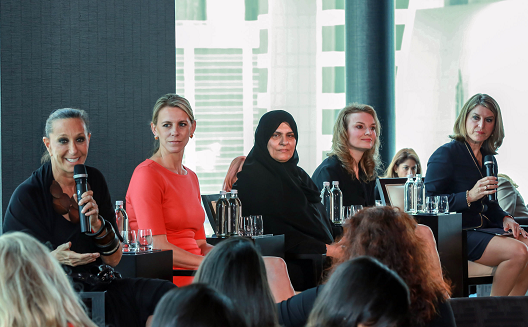Women entrepreneurs are more innovative than men in the Arab world


Women’s entrepreneurship is all the rage lately. Mentions of
women in the global media have risen from a catatonic 200 times a
year to 1200 times in 2012, HBR pointed
out yesterday. Is it simply a passing fad?, the author
asked.
In the Middle East and North Africa, as I
wrote last month, it's not just hype; women’s entrepreneurship
is poised for a major transition. Yes, there’s been a bit of
excitement around the topic lately. But the hype still masks the
fact that most stories of successful businesswomen in the region
have not been well-told (something we're working on with our new
series on women).
Female founders are still in short supply, however. While it's
been reported here and there lately that
over one-third of all business in the Middle East are led by
women, a statistic that approaches the
global average of 37%, that statistic originally comes from
data on a very specific population of tech entrepreneurs at
Oasis500
in Jordan, and likely does not represent the Arab world on the
whole.
Yet, more and more women will be coming on board as entrepreneurs
in the next decade; more women in the Middle East
intend to start new businesses, relative to men, than in any
other region in the world, according to this year’s Global
Entrepreneurship Monitor report.
A second tidbit that the report reveals (which we initially glossed
over), is that, while women aren’t necessarily more innovative than
men across the globe, they are in the Middle East. Twenty-three
percent of women entrepreneurs in this region have an innovative
product or service, as compared to 18% of men.
So, in the Arab world, women founders might just create more
innovative companies.

It might be counterproductive to make too much of that statistic,
for a few reasons that I’ve
argued (there’s no evidence of its statistical significance,
this data comes from a subset of countries in the Arab world, not
to mention that qualities like innovation are by no means innate),
but the trend points to a reality that VCs in the region typically
confirm: all other things equal, investing in a woman can be a
lower risk proposition, because women just, well work harder. We
get obsessed. We have something to prove.
One survey of U.S. companies also found that the successful
companies had
twice the number of women on the founding team.
Of course, women in the Middle East are still up against several
negative stereotypes (as women at our Wamda for Women roundtables
in Cairo,
Doha,
Amman, and
Riyadh avidly discussed).
But for the women founders
collectively seeking US $63 billion to $77 billion in funding
across the Middle East, the above might be good statistics to share
in a pitch, if an investor seems unconvinced that he or she can
trust a female founder. But only after revealing that innovative
product.
Photo Credit: mid-east.info.


